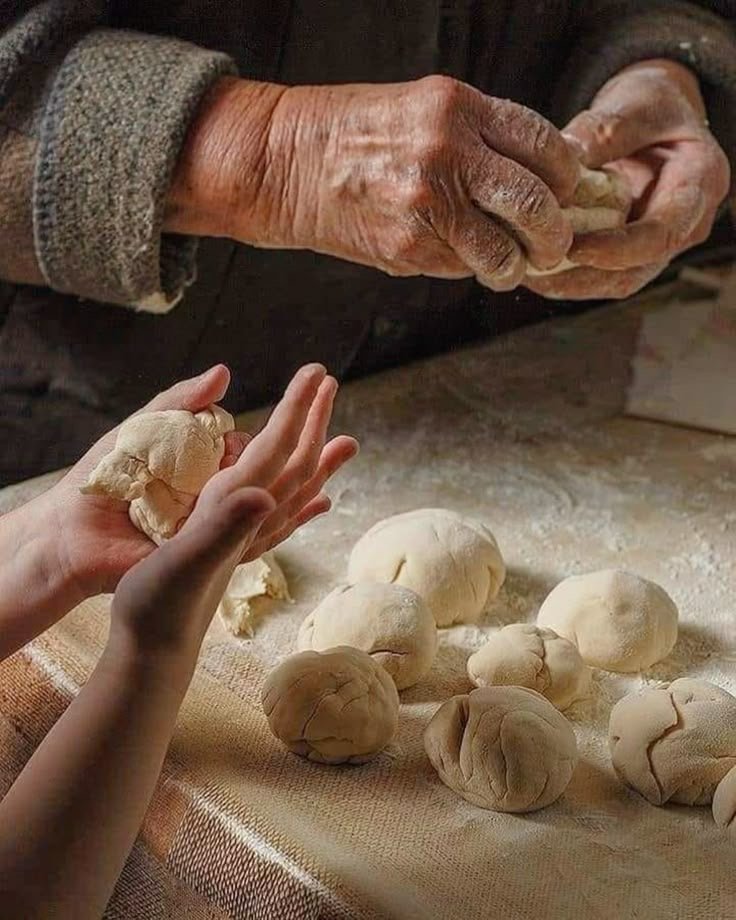Night Terror
The first night it happened, all the windows of our fieldstone house were open. The air moist and still, the sounds of trilling toads filled our bedroom. I’d gone to bed at nine, shortly after the twins, wrung out from an afternoon of playing alligator on the trampoline.
Ungodly screaming jolted me from deep sleep. Within seconds, everyone in the house was at Grace’s bedside—two mastiffs, my husband, and four-year-old Gus. Grace looked up at us, standing over her bed, her iceblue eyes unseeing. Teeth clenched, she spit anger. Purple mottled her face. Her eyes ping-ponged from side to side, trying to escape. She keened like a fox, a deeply eerie sound.
“What’s wrong with her?” My husband shouted as she writhed in front of us, twisting her sheets in her own private exorcism.
“Night terror. I think.” Pavor nocturus, the childcare books called it, a parasomnia disorder that occurs when a young child’s developing brain is over-stimulated. Medical definitions were meaningless in the face of this possession; it was so deep, it threatened to take her forever. “I mean, I hope that’s what it is. Otherwise, we’re royally screwed.”
I scooped Grace out of bed. Her arms and legs flailed, thumping me in the jaw, the soft skin of my underarm. “Get away, get away. I hate you.” Screams of rage turned into whimpers. “I don’t want you. I want my Mommy. My real Mommy.” This complete and unseeing rejection slayed me. My four-year-old daughter had been born eleven weeks early. At birth, unable to regulate her own temperature, a fine simian fur covered her. Every day for two months, I rocked her in the hospital, keeping her warm on my chest. Now, my daughter whom I loved fiercely was pushing me away, all thirty pounds of her stacked behind her fists, her teeth, her scratching nails.
Unlike her twin brother Gus, who dispensed hugs and kisses indiscriminately, Grace rationed her love. You took it when you could get it. From the moment she was born, Grace lived life on her own terms, all 2.6 pounds of her. She’d rolled over and crawled when she was three days old.
“I was so scared,” the NICU nurse confessed to me. “I came to put her feeding tube in, and she was gone! I found her all the way on the other side of her isolette.”
This was Grace. A profoundly willful soul. UCSF had never let any preemie go home before thirty-five weeks. Grace came home at thirty-four.
She detested the hospital, with its clanging emergencies and relentless beeps. On day five of life, she realized feeding from the bottle was more efficient and faster, so she rejected nursing completely. Wanted nothing to do with it.
She lay in her incubator, tiny translucent hands clutching the bottle, swallowing methodically—working to become strong enough to escape.
I took my rejections from Grace, and when she was willing to dole out smiles and snuggles, I took those, too. In the four years of our relationship,
I’d always been able to get her to stop crying. The night terror changed that. Deep rage and grief bubbled from her soul. Outside our windows, the trees stood beneath the streetlights, still and purposeless. Every time I touched Grace, she thrashed away, burnt.
The night terror became our moment of mutual abandonment. This thing writhing on the floor and yelling at me to get away was not my daughter. After years of fertility treatments and changing diapers, I no longer wanted to be mom. I hated being catapulted out of my warm bed on a lovely spring evening. And still, she shrieked. After ten minutes, she cried so hard she hyperventilated, taking huge gasps of air, suffocated by grief. Once she began to sob, I picked her up. All the air rushed from her body. Still asleep, she didn’t yet recognize me, but something in her imprinted. She curled herself around me and settled. With her face nuzzled into my neck, I rocked her until the wetness of her sobs subsided. Then I laid her gently on her bed where she slept like an angel.
That night, I had my own nightmare: a dream that reappeared each time Grace descended into her night terrors. In this dream, my high school Principal calls. Even after thirty years, Teacher Jane’s voice fills me with dread. With clearly audible glee, she announces that I failed high school English. All of it. My subsequent B.A. and Ph.D. in English are null and void. High school must be repeated. I hang up the phone and slide straight down her voice into 1983. I’m a painfully shy and undeveloped twelve-year old. My parents have sent me to a Philadelphia boarding school because they believe it will provide a better education than our local Boston public schools. When they leave me at orientation, the worst terror of my life overtakes me. Mid-wave, the leafy greenness of Pennsylvania swallows their station-wagon. I’m falling, falling, falling.
Possessed by a grief so strong, I don’t recognize myself, the notes of The English Beat’s “Tears of a Clown” blast from a dorm room window. New students laugh and leap around me in a game of Hacky Sack. These kids on the lawn are normal, celebrating their parents’ departure. I’m crazed, tethered to the present only by the knowledge that I must do everything I can to hide this colonizing fear.
In my nightmare, I visit the front office, certain the adult me will persuade Teacher Jane to allow me to become a day student. There’s no reason I should have to share a room with someone who could be my daughter, much less take high school English classes. But no. In 1983 and 2019, there’s no way out of Westtown School. The Principal is implacable in her grey, woolen, Quaker way. Rules are rules. Stay or give up your education. Throw away your right to talk about those books you love.
I want so badly to just go home, but I tell no one. I hunker down. My dreaming self knows I made it through this experience once before, but repetition only makes it worse. I know what’s coming. Surviving boarding school at twelve will take its toll. Even now, I cannot get into bed at night without feeling an urgent need to pee because we got demerits for leaving our rooms after ten, even to go to the bathroom.
And so, for the second time in my life, I live with my roommate Nancy and her Duran Duran posters in a room the size of a utility closet. It’s still 1983, so Nancy feathers her hair at 5:30 every morning. After a lifetime of Boston winters, summer lingers in Pennsylvania, turning rooms close and claustrophobic. The radiators hiss awake in early October. Surprisingly enough, given their parsimonious souls, none of the Quaker administrators can figure out how to turn them off. Nancy and I spend our first nights together sleepless and sweltering.
Every second of life at Westtown is regimented. A six a.m. bell wakes us, announcing work duty. My morning job is to clean the history classrooms, the vacuums so old, they only spit the dust into different places. Twelve and paralyzed with fear, I’m also painfully reflective. My days begin with recycling dirt in classrooms plastered with maps of the Ottoman Empire and the Eastern block. Surrounded by history, I myself have none. My parents have abandoned me here, in this place where I know no one, not even myself.
The dinner bell rings at six. We sit at tables covered in white cloths.
The upperclassmen talk about blowjobs and things I don’t understand. Outside, the light fades, and loneliness creeps in with all its haunting darkness. After dinner, it’s mandatory study hall in the giant collection room, filled with nineteenth-century sleigh desks and the ripples of adolescent hysteria. How the teachers can think this is a better environment than the quiet of the dorm rooms is beyond me. But that’s how boarding school is. Decisions are made by an invisible and irrational power.
After lights out, Nancy listens to Joshua Tree on a walkman the size of an encyclopedia in the bunk above me, while I cry. On Sundays, I call my parents from the phone booths next to the trunk rooms. Collect. It’s still 1983. The minute I hear my mother’s voice, the tears flow. But my voice never changes. She never learns I sob my way through every phone call.
“I love it here.” I twist the metal phone cord and angle my body to hide from the students waiting in the phone line. “The people are great.” I want to shriek, to expel the demon-like sadness that stitches itself into my every waking moment. Then my parents will whisk me away, my three years of boarding school just a dream, never to be repeated. We’ll drive from Boston to Pennsylvania, but this time in reverse. As we head out of the PA Turnpike, through New York City, onto the Merritt Parkways, and finally to the Mass Pike, the safe places will return, one by one, inside me.
I never tell this story. Not as a twelve-year old, not as a fifty-year old. History repeats itself in nightmare form inside my head each time my daughter’s night terrors return. With four-year-old twins, I’m doubly possessed.
As Grace writhes on the floor, I fear the depths of grief she will experience in her lifetime. Sadness for my mother and myself slides over me, so profound all I can do is let Grace crawl, abandoned, across the floor. Then I’m no longer with Grace. I’m on both sides of history, watching myself empty the tears from my voice on a collect call to Boston. I’m my mother, ensconced in our Beacon Hill library, happy I’ve sent my daughter away. Education, after all, is of the utmost importance. When given the choice between my Ph.D. and refusing to return to boarding school, I always make the same choice.
One morning after a night terror, I awake groggy and empty to the sound of the twins laughing hysterically. It must be early because an occasional cicada still raises it voice and the cardinals have not yet chirped. For a moment, I close my eyes, content that all is well again in my mother-daughter world. Grace will remember nothing from the previous night. On their beds next to me, the dogs rustle and sigh themselves awake. The soothing scent of sunscreen wafts over me. A rainy, April morning at 5:30. “Go get more sunscreen,” Grace orders. I launch myself out of bed. At the top of the stairs, the twins hunch over our camping mattress, hands dripping. They’ve smeared white sunscreen everywhere.
“What the hell are you two doing?”
Grace gazes at me, perplexed. She opens her arms towards the now fully lubricated camping mattress. “Duh, Mommy. Don’t you know anything? We’re making a slip-and-slide.”
I laugh, and I cannot stop laughing with my beautiful, clever daughter. Although her night terrors might spawn my own nightmares, her future is marked by resilience. By writing this down, by someday telling her the story of my telephone booth silence, I can teach her the most important things of all: there are times as a mother when you believe letting your daughter go is the best thing you can do, and there are times when staying silent will damage your soul. In her early morning laughter and joy, my four-year-old daughter has taught me how to recover. Grace will know terror in her waking life, as I myself have. I cannot protect her from her future. While the safe places will surely disappear from her life, as they do for us all, I can make certain she will never have to make her own drives of dread alone.
-Megan Williams
Megan Williams is a freelance writer and mother of eleven-year-old twins. She lives in Philadelphia. "Night Terror" was longlisted for the Fish Publishing Short Memoir Prize in 2019. This essay is part of a longer work memoir which details Megan's decision, at the age of forty-five, to abandon her career as an academic and apply to the Philadelphia Police Academy.





















